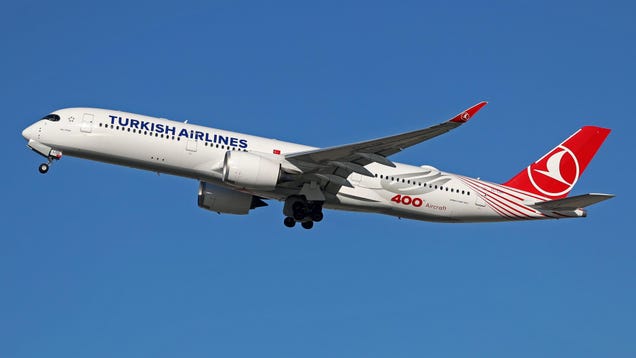Understanding the Tragic Incident of a Turkish Airlines Flight Diversion
The aviation industry is often celebrated for its safety and efficiency, but incidents like the recent Turkish Airlines flight diversion remind us of the inherent unpredictability of air travel. On a routine flight from Seattle to Istanbul, tragedy struck when the captain collapsed and died mid-flight, prompting an emergency landing in New York City. This incident raises several questions about the safety protocols in place for airline crews, the psychological impact on passengers, and the broader implications for aviation health standards.
What Happened During the Flight?
On a Wednesday morning, a Turkish Airlines Airbus A350 was en route from Seattle to Istanbul, a journey that typically spans approximately 11 hours. Four hours into the flight, the crew declared an emergency over the Canadian Arctic, leading to an immediate diversion to New York City. The decision to land was not taken lightly; it was a necessary response to an unforeseen medical emergency that ultimately resulted in the loss of the captain’s life.
The circumstances surrounding the captain’s death are still under investigation, with the FBI looking into the incident. Such investigations are crucial not only for understanding the specific event but also for ensuring that similar occurrences are prevented in the future.
What Are the Safety Protocols for Airline Crews?
Aviation safety protocols are designed to mitigate risks associated with in-flight emergencies. Airline crews undergo rigorous training, including medical emergency response, to prepare for various scenarios. However, the sudden nature of medical emergencies, such as a heart attack or stroke, can complicate even the most well-prepared plans.
According to a study published in the Journal of Occupational Health Psychology, the mental and physical health of airline pilots is critical to flight safety. Factors such as long hours, irregular schedules, and high-stress environments can contribute to health issues among pilots. Airlines are increasingly recognizing the importance of regular health assessments and mental health support for their crews.
What Are the Psychological Effects on Passengers?
Incidents like this can have profound psychological effects on passengers. Witnessing a medical emergency can induce anxiety and fear, leading to long-term psychological impacts. A study conducted by the International Air Transport Association (IATA) found that passengers exposed to in-flight emergencies often experience heightened stress levels and may develop a fear of flying.
Airlines are encouraged to provide support to passengers following such incidents. This can include counseling services or follow-up communications to address any concerns or fears that may arise. Understanding and addressing the emotional aftermath of such events is essential for maintaining passenger trust and confidence in air travel.
How Can Airlines Improve Health Standards?
In light of this tragic incident, there is an urgent need for airlines to reassess their health standards and protocols. Implementing regular health screenings for pilots and crew members could help identify potential health issues before they escalate into emergencies. Additionally, fostering a culture of health and well-being within airlines can encourage crew members to prioritize their health and seek help when needed.
Moreover, airlines could benefit from investing in advanced medical training for their crews, ensuring that they are equipped to handle a wider range of medical emergencies. This could include partnerships with medical professionals to provide ongoing training and resources.
What Are the Broader Implications for Aviation?
The incident involving the Turkish Airlines flight serves as a stark reminder of the vulnerabilities present in the aviation industry. As air travel continues to grow, the need for robust health and safety protocols becomes increasingly critical. Regulatory bodies, airlines, and health professionals must collaborate to establish comprehensive guidelines that prioritize the health of both crew members and passengers.
In conclusion, while the aviation industry has made significant strides in safety and efficiency, incidents like the Turkish Airlines flight diversion underscore the need for continuous improvement. By addressing health concerns, enhancing training, and providing psychological support, the industry can work towards ensuring that air travel remains a safe and reliable mode of transportation for everyone.

